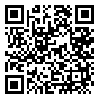Volume 3, Issue 4 (2023)
jpt 2023, 3(4): 327-338 |
Back to browse issues page
Download citation:
BibTeX | RIS | EndNote | Medlars | ProCite | Reference Manager | RefWorks
Send citation to:



BibTeX | RIS | EndNote | Medlars | ProCite | Reference Manager | RefWorks
Send citation to:
Mehrnia H. Transition from Atheistic to Theological Education; an Analytical Introduction to Hegel's Philosophy of Education. jpt 2023; 3 (4) :327-338
URL: http://jpt.modares.ac.ir/article-34-70938-en.html
URL: http://jpt.modares.ac.ir/article-34-70938-en.html
Department of Philosophy, Theology Faculty, Farabi Campus, Tehran University, Qom, Iran
Abstract: (591 Views)
The issue of "Bildung" has been considered more than anyone else in Hegel's philosophical thought. He has focused more on this issue in the Phenomenology of the Spirit and Elements of the Philosophy of Right books, and the Nuremberg Speeches. In this article, two central points in Hegel's thought have been emphasized: a) the necessity of distinguishing between different types of "theological-ethical", "natural-anthropological", "political" Bildung, and finally the Hegelian "cultural-historical" Bildung; And then removing the accusation from the Hegelian system, about trying to remove God and the theological view from the Bildung concept; b) Proving that, according to Hegel, the process of education includes "nature", "individual" and "human society" at the same time, and contrary to popular opinion, it will not be limited to the human individual. Therefore, when discussing awareness, freedom, alienation, and the like, he actually explains the formation of education in these three fields.
Article Type: Original Research |
Subject:
Epistemology (Modern)
Received: 2023/08/6 | Accepted: 2023/10/1 | Published: 2023/10/12
Received: 2023/08/6 | Accepted: 2023/10/1 | Published: 2023/10/12
| Rights and permissions | |
 |
This work is licensed under a Creative Commons Attribution-NonCommercial 4.0 International License. |








